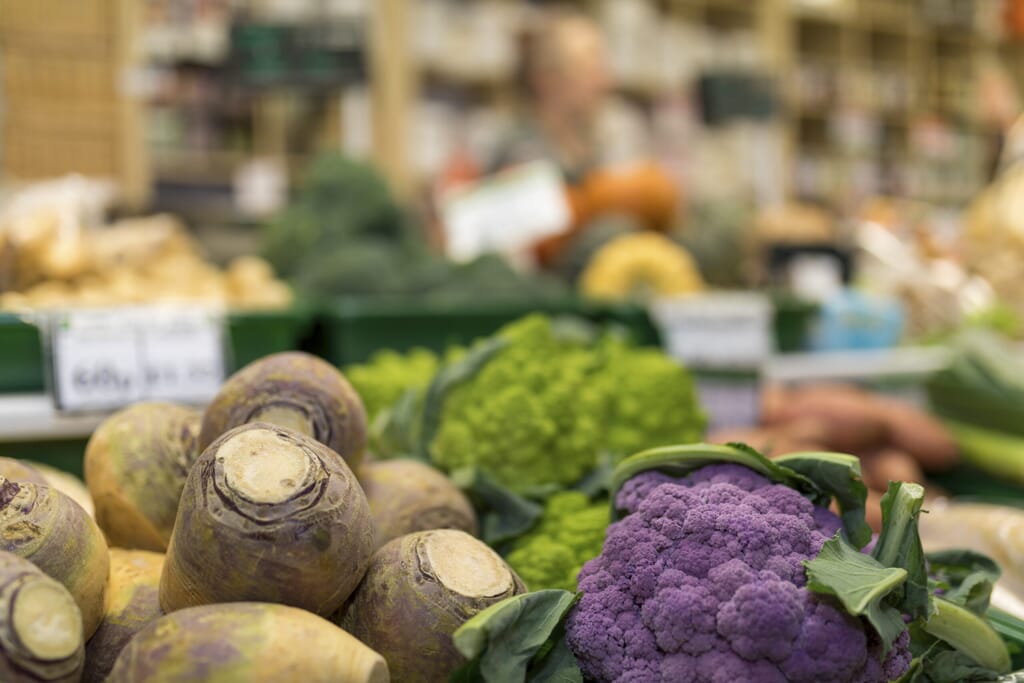Brandscape
The Flourishing Farm Shop: A Beacon of Locally Sourced Goodness in the UK

In recent years, the landscape of food shopping in the United Kingdom has witnessed a significant transformation. Amidst the dominance of supermarkets and online grocery giants, a charming resurgence has quietly been taking place: the rise of the farm shop. These quaint establishments, often nestled amidst rolling countryside or on the outskirts of towns, have become more than just places to purchase fresh produce; they’ve evolved into thriving hubs of community engagement, sustainability, and economic vitality.
The farm shop phenomenon is not merely a passing trend but a reflection of changing consumer preferences and values. With an increasing desire for locally sourced, ethically produced goods, consumers are turning to farm shops as an alternative to supermarkets’ impersonal, mass-produced offerings. According to recent statistics, the number of farm shops in the UK has steadily risen, with over 3,500 establishments operating nationwide. This surge in popularity is indicative of a broader shift towards supporting small-scale, independent producers and fostering closer connections between consumers and the origins of their food.
One of the key attractions of farm shops lies in their ability to offer diverse products that are often unavailable or overshadowed in more prominent retail outlets. Farm shops showcase the best local and regional produce, from artisanal cheeses and freshly baked bread to organic meats and seasonal vegetables. These establishments serve as platforms for new starter brands and specialist producers, providing them invaluable exposure and opportunities to reach a wider audience. For many small-scale farmers and artisans, farm shops represent a lifeline in an industry dominated by corporate giants, offering a means to bypass conventional distribution channels and sell directly to consumers.
Beyond the economic benefits for producers, farm shops play a crucial role in fostering community cohesion and preserving rural traditions. By sourcing goods locally, these establishments contribute to the sustainability of regional economies and help maintain small-scale agriculture’s viability. Moreover, farm shops often serve as gathering spots where locals can socialise, exchange recipes, and learn about the provenance of their food. This sense of connection to the land and to one’s neighbours cannot be replicated in the sterile aisles of a supermarket.
The success of farm shops extends beyond their role as purveyors of fresh produce; they are also driving significant contributions to the UK economy. According to a report by the Farm Retail Association, farm shops collectively generate over £1.5 billion in revenue annually, supporting thousands of jobs and injecting vital funds into rural communities. This economic impact underscores the importance of recognising and supporting the essential role that farm shops play in the broader food retail sector.
In addition to their economic contributions, farm shops are champions of sustainability and environmental stewardship. By prioritising locally sourced goods, these establishments reduce the carbon footprint associated with food transportation and minimise packaging waste. Many farm shops also embrace organic farming practices and strive to minimise the use of pesticides and other harmful chemicals, promoting healthier ecosystems and soil quality. As consumers become increasingly conscious of the environmental impact of their purchasing decisions, the sustainability ethos embodied by farm shops holds strong appeal.
Despite their growing popularity and undeniable success, Farm shops face challenges that threaten their continued viability despite their growing popularity and undeniable success. Competition from supermarkets and online retailers and rising operational costs pose significant obstacles to profitability for many small-scale producers. Additionally, uncertainties surrounding Brexit and trade agreements may impact the availability of certain goods and increase import costs, further complicating the landscape for farm shops.
However, despite these challenges, the enduring appeal of farm shops as bastions of quality, community, and sustainability ensures their resilience in the face of adversity. As consumers prioritise authenticity and connection in their shopping experiences, farm shops are poised to remain integral players in the UK food retail sector for years.
In conclusion, the rise and success of farm shops in the UK represent more than just a resurgence of traditional shopping practices; they embody a broader shift towards sustainability, community, and conscientious consumption. Farm shops provide consumers with a more intimate and meaningful shopping experience while supporting small-scale producers and rural economies by offering an alternative to supermarkets and championing locally sourced goods. As we navigate an increasingly complex and interconnected food system, the humble farm shop stands as a beacon of hope, reminding us of the profound impact our choices can have on our health, communities, and planet.



